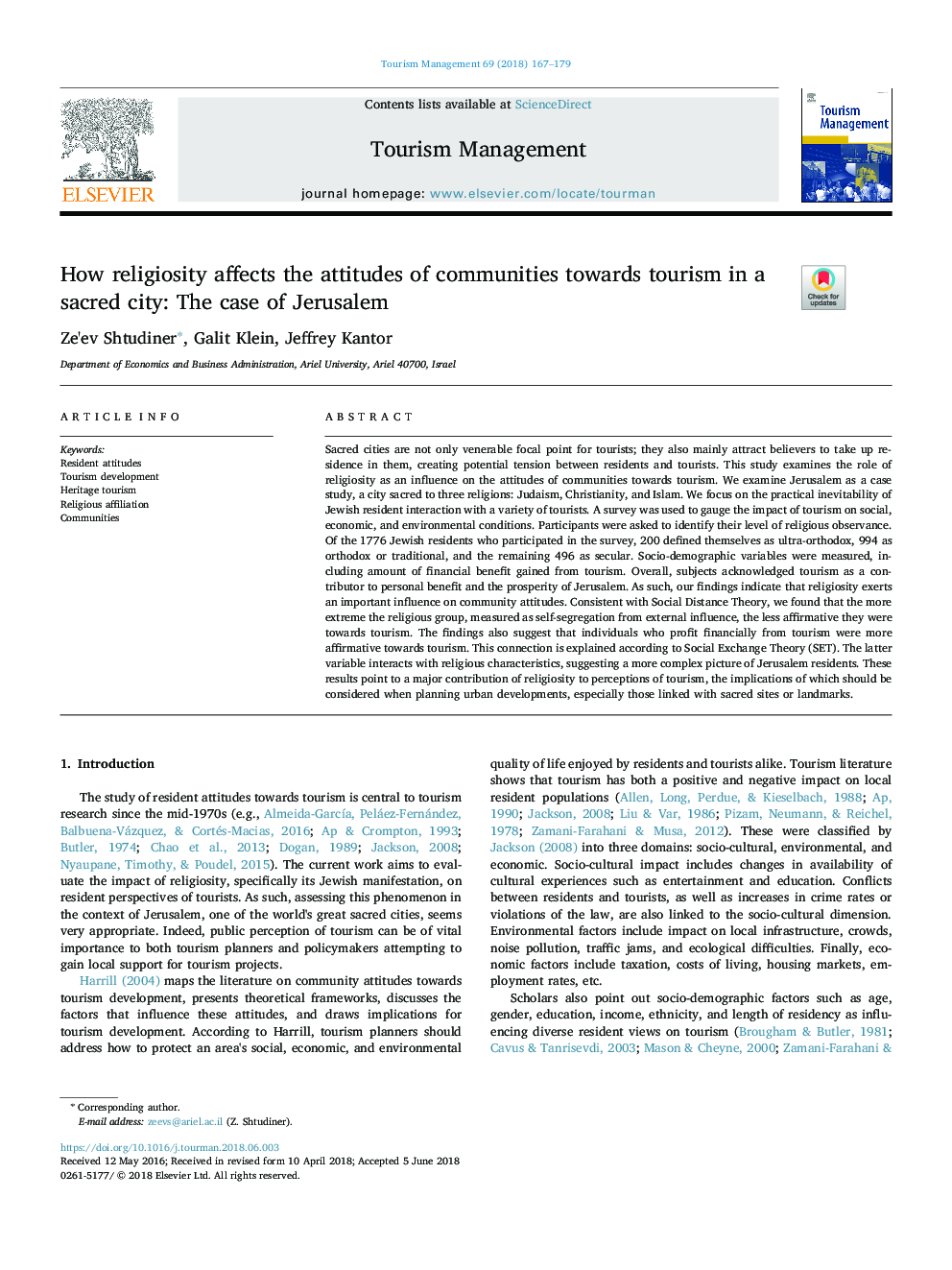| کد مقاله | کد نشریه | سال انتشار | مقاله انگلیسی | نسخه تمام متن |
|---|---|---|---|---|
| 7420643 | 1482614 | 2018 | 13 صفحه PDF | دانلود رایگان |
عنوان انگلیسی مقاله ISI
How religiosity affects the attitudes of communities towards tourism in a sacred city: The case of Jerusalem
ترجمه فارسی عنوان
چگونه دینداری بر نگرش جوامع نسبت به گردشگری در یک شهر مقدس تاثیر می گذارد: مورد اورشلیم
دانلود مقاله + سفارش ترجمه
دانلود مقاله ISI انگلیسی
رایگان برای ایرانیان
کلمات کلیدی
نگرش های اقامت، توسعه گردشگری، گردشگری میراث، وابستگی مذهبی، جوامع،
موضوعات مرتبط
علوم انسانی و اجتماعی
مدیریت، کسب و کار و حسابداری
استراتژی و مدیریت استراتژیک
چکیده انگلیسی
Sacred cities are not only venerable focal point for tourists; they also mainly attract believers to take up residence in them, creating potential tension between residents and tourists. This study examines the role of religiosity as an influence on the attitudes of communities towards tourism. We examine Jerusalem as a case study, a city sacred to three religions: Judaism, Christianity, and Islam. We focus on the practical inevitability of Jewish resident interaction with a variety of tourists. A survey was used to gauge the impact of tourism on social, economic, and environmental conditions. Participants were asked to identify their level of religious observance. Of the 1776 Jewish residents who participated in the survey, 200 defined themselves as ultra-orthodox, 994 as orthodox or traditional, and the remaining 496 as secular. Socio-demographic variables were measured, including amount of financial benefit gained from tourism. Overall, subjects acknowledged tourism as a contributor to personal benefit and the prosperity of Jerusalem. As such, our findings indicate that religiosity exerts an important influence on community attitudes. Consistent with Social Distance Theory, we found that the more extreme the religious group, measured as self-segregation from external influence, the less affirmative they were towards tourism. The findings also suggest that individuals who profit financially from tourism were more affirmative towards tourism. This connection is explained according to Social Exchange Theory (SET). The latter variable interacts with religious characteristics, suggesting a more complex picture of Jerusalem residents. These results point to a major contribution of religiosity to perceptions of tourism, the implications of which should be considered when planning urban developments, especially those linked with sacred sites or landmarks.
ناشر
Database: Elsevier - ScienceDirect (ساینس دایرکت)
Journal: Tourism Management - Volume 69, December 2018, Pages 167-179
Journal: Tourism Management - Volume 69, December 2018, Pages 167-179
نویسندگان
Ze'ev Shtudiner, Galit Klein, Jeffrey Kantor,
